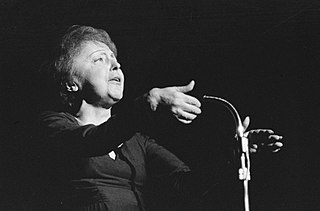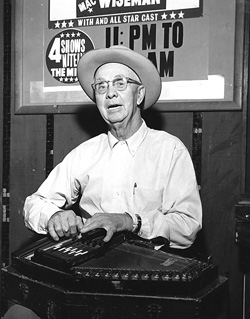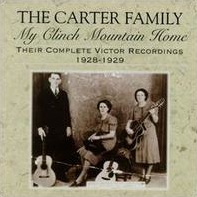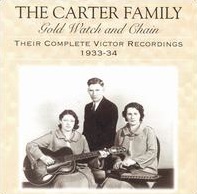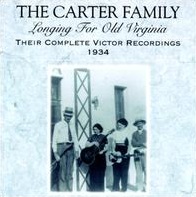| Sunshine in the Shadows: Their Complete Victor Recordings (1931–1932) | ||||
|---|---|---|---|---|
 | ||||
| Compilation album by Carter Family | ||||
| Released | 1996 | |||
| Recorded | 1931–1932 in Louisville, Kentucky and Atlanta, Georgia | |||
| Genre | Country, old-time, folk | |||
| Length | 47:28 | |||
| Label | Rounder | |||
| Producer | Ralph Peer | |||
| Carter Family chronology | ||||
| ||||
Sunshine in the Shadows: Their Complete Victor Recordings (1931–1932) is a compilation of recordings made by American country music group the Carter Family, released in 1996. It is the fifth of nine compilations released by Rounder Records of the group's Victor recordings. [1] The original Carter Family group consisting of Alvin Pleasant "A.P." Delaney Carter, his wife Sara Dougherty Carter, and his sister-in-law Maybelle Addington Carter recorded many of what would become their signature songs for Victor Records. [2]

The United States of America (USA), commonly known as the United States or America, is a country composed of 50 states, a federal district, five major self-governing territories, and various possessions. At 3.8 million square miles, the United States is the world's third or fourth largest country by total area and is slightly smaller than the entire continent of Europe's 3.9 million square miles. With a population of over 327 million people, the U.S. is the third most populous country. The capital is Washington, D.C., and the largest city by population is New York City. Forty-eight states and the capital's federal district are contiguous in North America between Canada and Mexico. The State of Alaska is in the northwest corner of North America, bordered by Canada to the east and across the Bering Strait from Russia to the west. The State of Hawaii is an archipelago in the mid-Pacific Ocean. The U.S. territories are scattered about the Pacific Ocean and the Caribbean Sea, stretching across nine official time zones. The extremely diverse geography, climate, and wildlife of the United States make it one of the world's 17 megadiverse countries.
Country music, also known as country and western, and hillbilly music, is a genre of popular music that originated in the southern United States in the early 1920s. It takes its roots from genres such as folk music and blues.
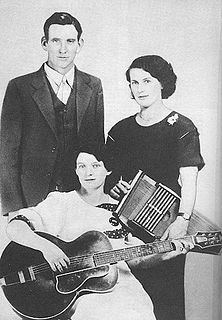
The Carter Family is a traditional American folk music group that recorded between 1927 and 1956. Their music had a profound impact on bluegrass, country, Southern Gospel, pop and rock musicians as well as on the U.S. folk revival of the 1960s. They were the first vocal group to become country music stars, and were the first group to record commercially produced country music in recorded history. Their first recordings were made in Bristol, Tennessee under producer Ralph Peer on August 1st, 1927, the day before country singer Jimmie Rodgers also made his initial recordings under Peer. Their recordings of songs such as "Wabash Cannonball", "Can the Circle Be Unbroken", "Wildwood Flower", "Keep On the Sunny Side" and "I'm Thinking Tonight of My Blue Eyes" made these songs country standards. The latter's tune was used for Roy Acuff's "The Great Speckled Bird", Hank Thompson's "The Wild Side of Life" and Kitty Wells' "It Wasn't God Who Made Honky Tonk Angels", making the song a hit all over again in other incarnations.





